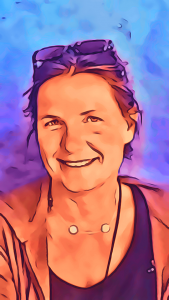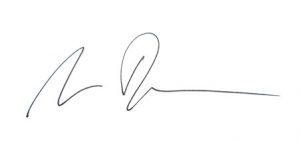144 Letter from Anya Diekmann

Dear future tourism researcher,
When Sara and Antonia invited me to write a letter for future tourism researchers, so many things, positive and negative, came to my mind. The positive things are the encounters with colleagues and students, friendships, exciting research projects and exchanges that enrich our work and personal life… and having fun.
However, writing a letter to future women researchers is also a challenge as there is quite a lot that isn’t really functioning properly, notably when it comes to gender equality in the academic world. Many of us find ourselves in a – still too often – male-dominated environment. The very fact that an initiative like this exists shows how far we still have to go for equal opportunities and recognition. I particularly hope that men read this book, as equality should be a common goal and not only a women’s struggle.
The challenge lies in the expectations of what people of either sex should achieve in their careers. There are still too many assessments and evaluations rooted in journal rankings and citation indexes, in quantity rather than quality. In such a competitive environment, it is difficult to find a work/life balance.
The work environment needs to change. When I applied for my PhD scholarship, I was pregnant with my third child. My supervisor (a woman) told me, laconically: ‘If you can organise your life when you have three children, you can certainly do a PhD’. She was right: it was not only possible but a great opportunity to do something I really enjoyed and that added a different dimension to my life.
Academia has many advantages. One of the principal ones is freedom (at least to some extent, depending on where you work) – freedom to choose your research topics, to choose your collaborators, to choose where to invest your time and energy to develop new projects and initiatives.
Of course, the daily life is not that easy. As an academic you have to deal with numerous challenges, such as multiple tasks your never signed up for, and often it becomes difficult to find the time to do the actual research because you are seemingly always dealing with teaching, admin, diverse management tasks and of course your private life. Another important challenge is professional competition or, for women, sometimes simply getting by in a male-dominated environment.
When, a few years ago, I applied for promotion to become a full professor, I was the only woman alongside 18 male competitors. Only 30% of the full professors in the university were women. Many female colleagues had actually given up on applying for a promotion, as they felt they had no chance. This clearly reveals a failure of the system and its values.
In the end, I feel, it is not about succeeding in a competitive male world, but about creating a new system, where human values and team spirit become the basis for assessments, rather than the amount of funding generated. The number of articles published should not be more important than helping and training young researchers and students and finding a good work/life balance.
Equality will be achieved only when people of all genders, working together, actively engage in changing current realities (starting with not accepting certain inherited and outdated gendered logics) and devise a new system. This will take time but, at some point, it will work.
Good luck to all.

Anya Diekmann
Université libre de Bruxelles, Belgium

